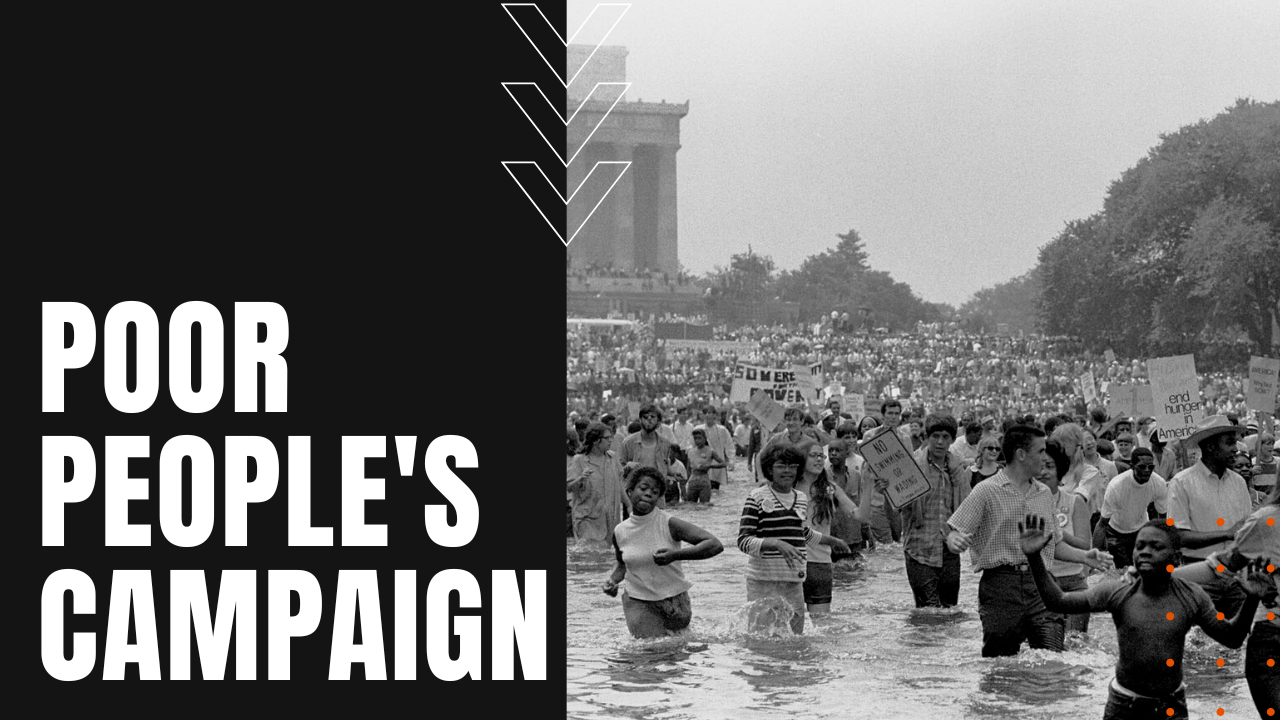Poor People’s Campaign

In November of 1967, Martin Luther King, Jr. and his Southern Christian Leadership Conference decided to undertake the Poor People’s Campaign, in an attempt to demand economic justice for the nation’s poor.
MLK’s Posthumous Poor People’s Campaign
After King’s unjust assassination on April 4th, 1968, which led to widespread rioting in most major American cities, King’s longtime friend and fellow civil rights activist Rev. Ralph Abernathy stepped in to fulfill King’s vision of a mass protest on Washington, D.C., while the Rev. Jesse Jackson stepped in as city manager to what became known as Resurrection City.
Busloads of a broad coalition of Native Americans, white, Latino and African Americans began arriving into the District on May the 12th, 1968, occupying the 15-acre makeshift tent city near the Lincoln Memorial and the Washington Monument, holding daily protests against federal lawmaker’s dogged inaction on poverty.
Poor Conditions Plague Protestors
For the next six weeks, some 2,700 protesters endured harsh living conditions, including rain, mud, heat and high humidity, as well as frequent clashes with police.
The beleaguered demonstration culminated with the Poor People’s March of June 19th, 1968, with an estimated 50,000 people in attendance, including speeches by Vice President Hubert Humphrey, Democratic presidential candidate Eugene McCarthy, Abernathy and King’s widow, Coretta Scott King.
Poor People’s Campaign Protestors Arrested
Distracted by ongoing racial tensions and the Vietnam War, the Poor People’s Campaign came to an end on June 24th, when a 36-day permit terminated the demonstrator’s legal right of assembly, and when 500 protesters refused to vacate their soggy encampment, authorities used tear gas to disperse the remaining crowds.
More than 100 protesters were arrested during the melee, including Abernathy, and while the Poor People’s Campaign failed to bring about any significant antipoverty legislation by congress, it marked the first time that the civil rights movement expanded beyond demands for racial equality to include interracial class issues and economic goals for the nation’s poor, making the Poor People’s Campaign, the last bold act of nonviolent protest by a nation’s revered and fallen hero.
